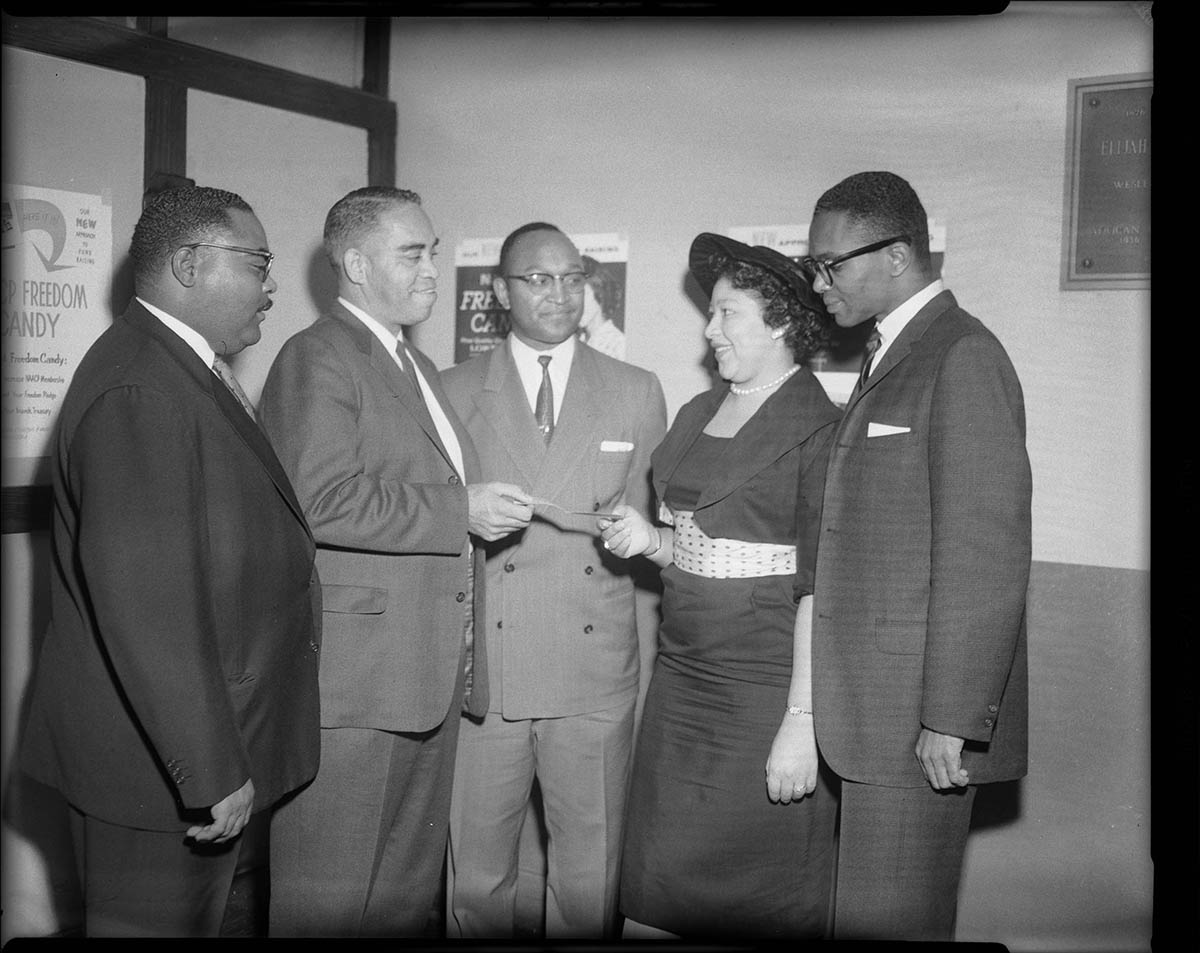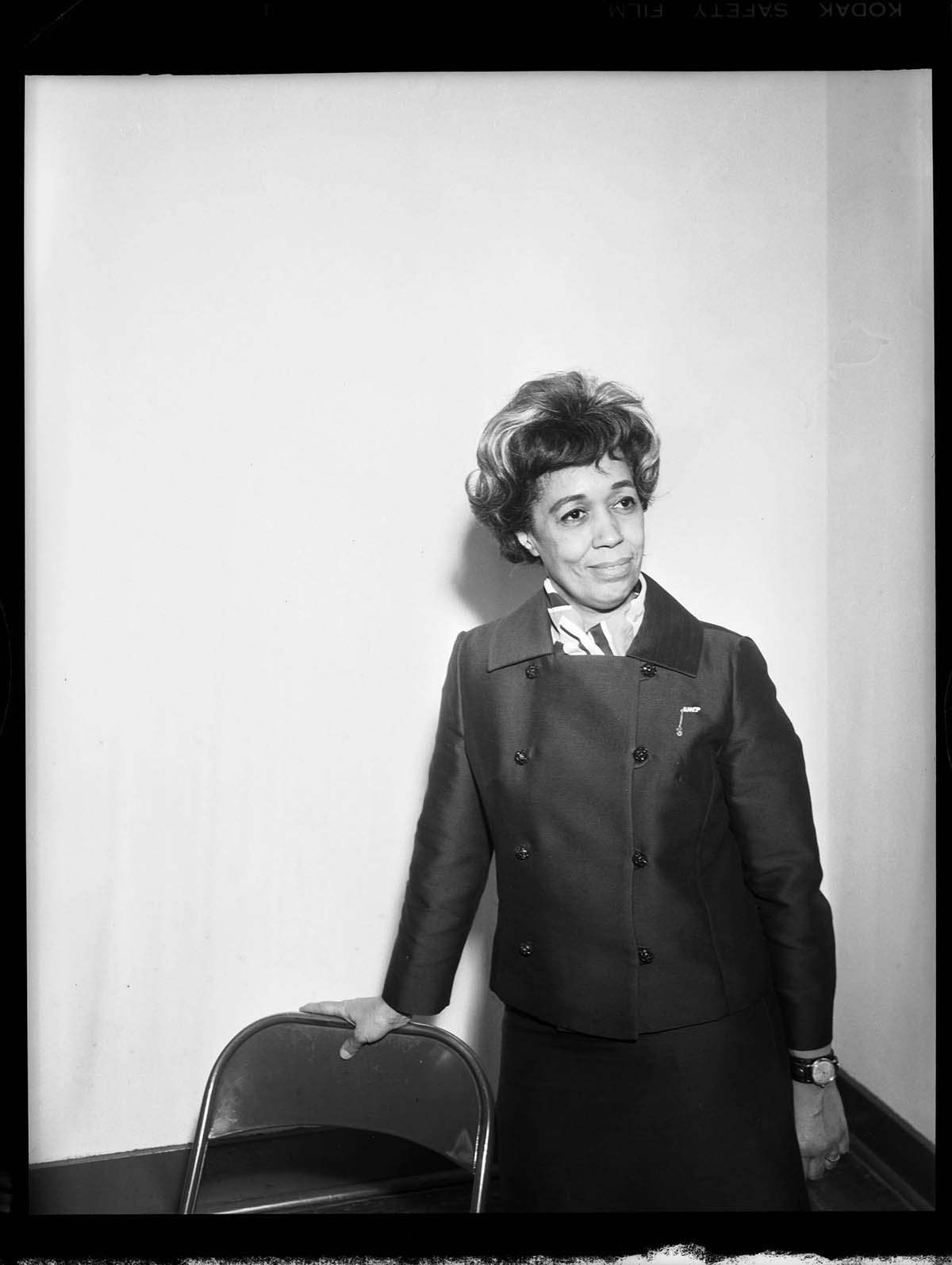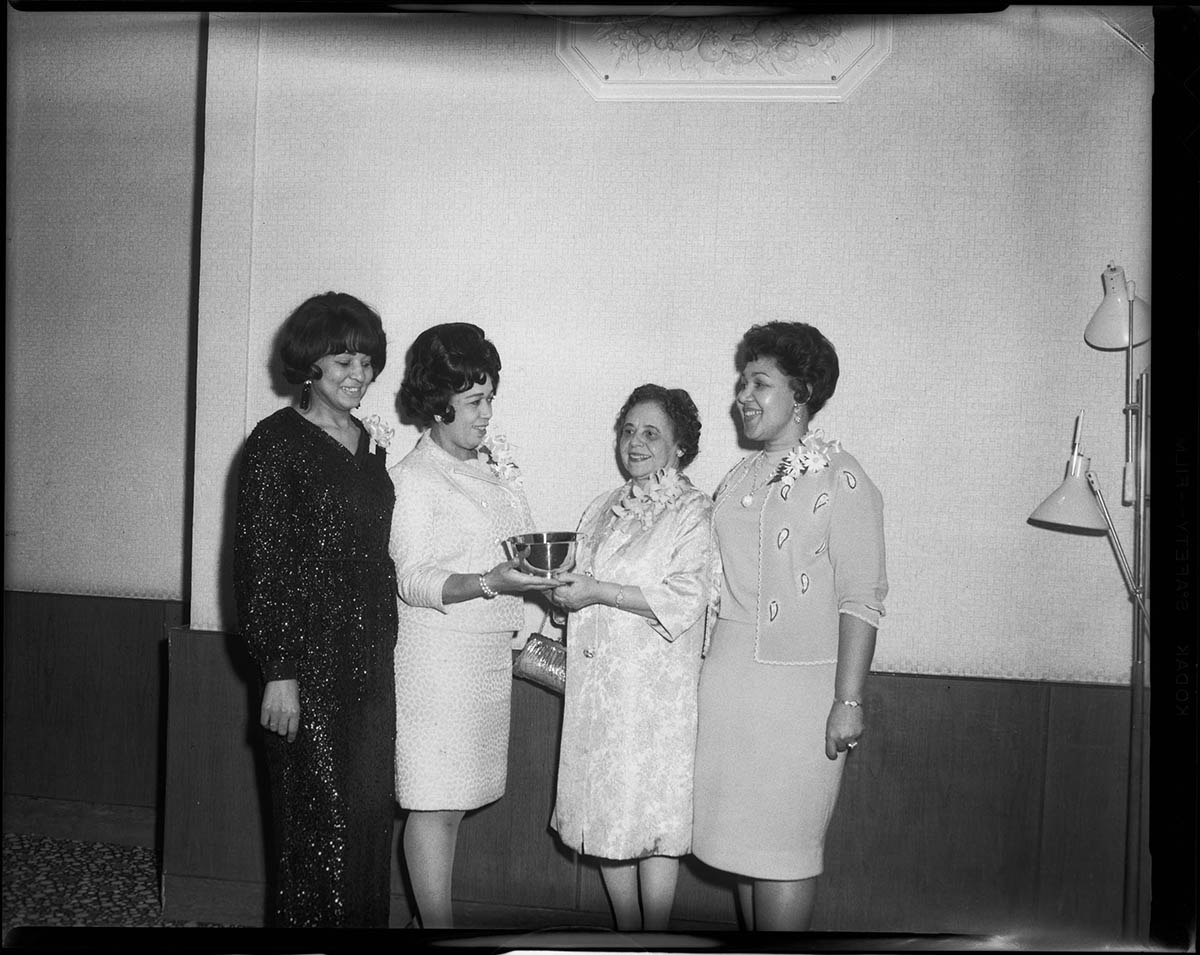
When I agreed to write this essay, I knew it had to center around a conversation with Teenie Harris Photographs: Civil Rights Perspectives guest curator Alma Speed Fox. At 91 years old, she’s fought for civil rights, women’s rights, and LGBT rights for over 75 years. Alma was a friend of my grandmother, Georgetta Holmes Stevens, aka “Big George.” And she’s my uncle Tim Stevens’s “Civil Rights Mother.”
I remember her attending one of my Big George oral history readings. I told a story about my grandmother inspecting my elbows to make sure I was using lotion regularly. Alma shared how back in the day, after making lemonade, black women sat their elbows in the lemon peels to lighten them. It was the only time you were allowed to put your elbows on the table.
But I’d never talked one-on-one with Alma. When she agreed to talk with me, she asked a rhetorical question: “Why, after all this work, haven’t black people come further?” Before I could answer, Alma asked if I’d heard of Derrick Bell.
The name sounded familiar. She told me he grew up on Herron Avenue in the Hill District around the corner from Big George. And that I should read his books, particularly And We Are Not Saved: The Elusive Quest for Racial Justice.
Then she said I should come to an open house at Freedom Unlimited, the organization she co-founded to help low-income families become self-sufficient.
A few pages into the book, I looked Derrick Bell up online. We know the Hill District as the birthplace of August Wilson and his plays, Teenie Harris and his photos. We know it for jazz, but why not also as the birthplace of Derrick Bell—a creator of critical race theory?
Bell graduated from Pitt Law School, worked at the Justice Department (where he resigned rather than be forced to give up his NAACP membership), and came home to lead the Pittsburgh NAACP. He moved on to the NAACP Legal Defense Fund at the request of Thurgood Marshall, and eventually became Harvard’s first black tenured law professor.
I tried to place him in the context of my own oral history work, and recalled the name Ada Bell—a friend of Big George and fellow member of Grace Church’s “Elva Circle.” Returning to the book, I discovered its dedication to Ada Bell, Derrick’s mother.
I brought my daughter and a copy of And We Are Not Saved to Freedom Unlimited, located in none other than the Alma Speed Fox Building in the Hill. Alma jumped up to greet us—and everyone else who came in the door for the open house. She was glad to see I was reading the book, and encouraged us to see the photos by Charles Martin in the back of the building.
These photos allowed me to show my daughter what was happening in Pittsburgh on April 7, 1968, on the National Day of Mourning, three days after Martin Luther King Jr.’s assassination. Crowds of people, including Byrd Brown and Alma, marched in protest and mourning down streets flanked with police and National Guardsmen. My mom, eight months pregnant with me, wondered what kind of world she was bringing a child into.
I told my daughter, probably for the billionth time as far as she was concerned, that my dad and uncle guarded Big George and Jasper’s Wylie Avenue house—which sat inches from a Jewish-owned grocery store that might have been burned down by rioters had they not seen black faces out front.
I had a few days to finish the book before meeting with Alma again. On the way to her house, huge sticky snowflakes fell and cars slid. I called her from my cell to say I’d be a few minutes late—I’d be safer walking uphill to her house.
I’d researched Alma online in preparation. I knew she’d been reluctant to join the National Organization for Women—she was busy enough in the NAACP. But while black men and white women were advancing, she realized that when it came to issues like job opportunities, someone needed to speak up for black women in both organizations. She’d be that person.

By the time I arrived, my afro-puff made me look like a snow-woman. Alma gave me a towel to dry off, and gave me two books to keep: Disintegration: The Splintering of Black America by Eugene Robinson, and In One Era and Out the Other: Essays on Contemporary Life by Patricia Prattis Jennings.
We sat and talked about Bell’s book, which combines fantasy and nonfiction to examine race, law, and history in a way that’s as rigorous as it is imaginative. After stories he calls “Chronicles”—metaphorical tales that explore African American civil rights—the narrator and the book’s fictional black female heroine, Geneva Crenshaw, examine legal precedent in many areas including voting rights, school desegregation, and affirmative action, before debating alternate possible outcomes.
I recently watched Do the Right Thing with my daughter, who stopped the DVD during Radio Raheem’s murder by police to say, “This is today, Mama.”
How is it possible, as Geneva Crenshaw states, that “we have made progress in everything yet nothing has changed”? Bell’s book has an answer: “Both practice and law are affected by a major, though seldom acknowledged, factor: the self-interest of segments of the dominant society.” His book argues that new laws meant to uphold equality can still be interpreted in ways that uphold the status quo. But our investment in society is too great to choose the only alternatives: to give up, or resort to violence. So we must keep working.
We’d planned to talk for an hour, but were already 15 minutes over. Alma offered me coffee, but I didn’t want to overstay my welcome. I did want to give her something though, a poem. And to my pleasure, as she read it aloud, a big smile spread across her face. As if she was looking in a mirror and loved what she saw.
After reading the lines “what did i see except to be myself? i made it up,” Alma said, “I did!” and told me about a seventh grade Civics family tree assignment in the predominantly white school she attended. She didn’t know her family history before her parents, so she made up relatives from France, England, Spain, and Africa—all royalty.
Her teacher read it, looked her in the eye, then crinkled and discarded her lineage. But we get the last word in this history. Alma is royalty, as are we. Still here. Still fighting for our equality. Our imaginations intact.
After saying goodbye to Alma, I put on my boots and walked down the snow-covered hill, feeling alive and ready to write.

Kelli Stevens Kane is a poet, playwright, and oral historian based in Pittsburgh, Pennsylvania. She’s a Cave Canem Fellow, an August Wilson Center Fellow, and a Flight School Fellow, and has twice received Advancing Black Arts in Pittsburgh grants from The Pittsburgh Foundation. She reads her poetry and oral history, and performs her one-woman show, Big George, nationally.
Storyboard was the award-winning online journal and forum for critical thinking and provocative conversations at Carnegie Museum of Art. From 2014 to 2021, Storyboard published articles, photo essays, interviews, and more, that spoke to a local, national, and international arts readership.